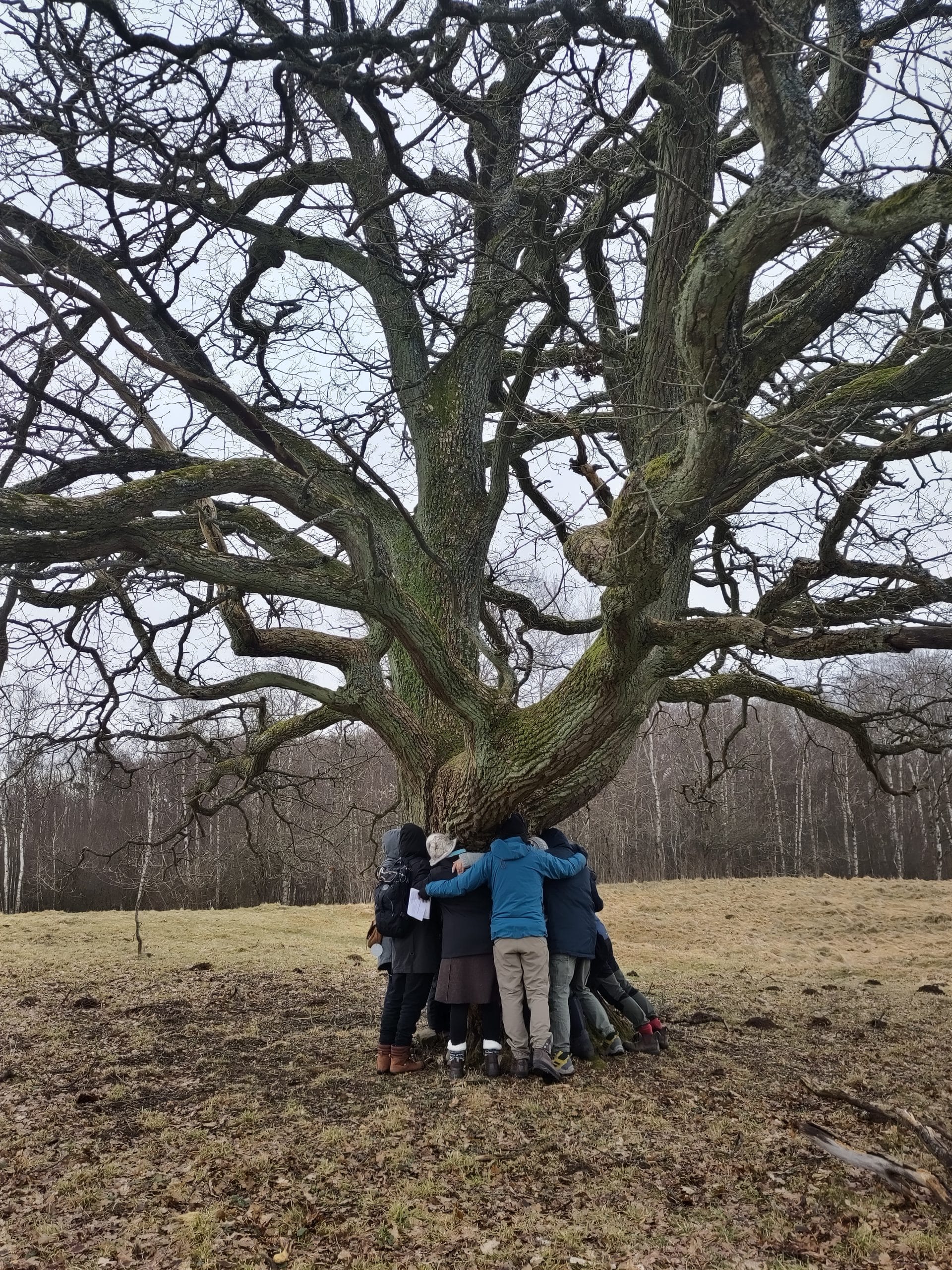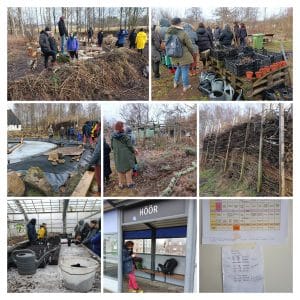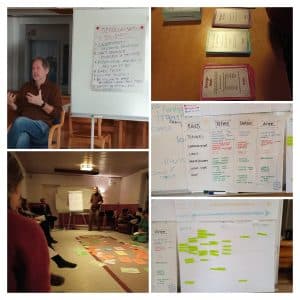Dear readers,
Greetings from Helene from the Green School Village team and its branch – Permaculture Association of Bulgaria. This is my first article in the blog and I would like to share with you our experience with Vesko (Veselin Spasov) from our journey to get a training course with certificate for teaching permaculture as part of our Capacity Building of Permaculture in Bulgaria project, dedicated mostly to LAND.
Sweden was our destination for Permaculture Teacher Training (PTT) last winter in February.
Five days of traveling for eleven days of training in Holma folkhögskola near Höör, Sweden.
A deep immersion into the teaching approach of permaculture, following the work of Rosemary Morrow, we learned and taught about how permaculture design can be an effective learning process.
The permaculture training courses are based on ethics: Earth Care, People Care and Fair Shares, with a focus on principles, techniques, and tools. This teaching methodology is more conscious and intentional.
As I have progressed through life, I have encountered various informal education teaching methods, which make me critical every time I encounter new experiences and knowledge in these subjects. This Permaculture tutor training gave me new perspectives and knowledge, mostly in human behaviour and how to integrate it into my teaching, how to give more trust and respect to learners. The motto ‘All teachers, all learners’ reflects this. Of course, this needs the practice and the patience of a motivated team.
During our journey over the theoretical aspects, our “teachers” (facilitators) used permaculture ethics and principles with professionalism. Of course, it is not easy and even not realistic but going through this process, you create better capacities and competencies in working with people using Nature models. Why do I decide to share this in this article? Most people that learn permaculture are looking for answers in communication, education, and strategies in developing human beings in a nice way, as diversity and kindness, including by using complex natural systems. The content and the process of the PTT are a great way to accomplish this.
Several times we heard that it is important to keep in mind that permaculture shouldn’t be seen as a dogma. Another important thing is that permaculture teaching is a process that supports the evolution, adaptation, and development of the permaculture movement. One topic from the course was the opportunity to think about the future of this culture of living and thinking. We analyzed how this movement is working in a decolonization way of thinking, and the importance that we are conscious of where we come from, who are we teaching, and what we have to learn. There is no place for culpability, this is learning about our societies.
A little more about the Holma folkhögskola and its representatives. During the course we had very good experience with the main persons who transformed old buildings and turned them into teaching facilities – Andreas Jonsson and his wife – Justine, who was our “most important person on the course – the cook”.
The school is a real example of long-term working with municipalities, informal education, and permaculture. On the site you can find some houses, a forest garden, a market farm, a kindergarten, a biodynamic farm, and a building for offices for the local community. There is no need to say that the accommodation was perfect. Even most of the food was made of local products, was nutritional, tasty and fair. Every day the cook used a new principle of permaculture to present the meal. It is so nice to give intention to your actions.
In this school, different people from different generations can learn different competencies around permaculture, ecological gardening, ecological building … The education is free, and the structure succeeded (after many efforts) to get financed by the Swedish government for more democratic education. For example, young people who cannot fit in conventional schools “rebuild” themselves and get new skills and theory in the folkhögskola school.
The school is also a social and cultural place, where events are organized, meetings between actors of the local community and guests from other countries around the world. In folkhögskola you can see kids from kindergarten having every day a walk and games in nature no matter the weather.
The organization of the school uses sociocracy. This means that the responsibilities are shared. People work in groups by domains that they choose, working in attending to the aims of their domain. They practice horizontal governance, using feedback to find the best efficacy in decision-making for the mission of the school.
But let me tell you more about the content and the flow of the course:
Alfred Decker from 12P Permaculture Design, Catherine Dolleris from Nordic Permaculture Academy, and Andreas Jonsson from Holma Folkhogskola prepared a permaculture teacher training mainly based on the work of Rosemary Morrow.
In the course were used games, icebreakers, energizers and circles like community building. The group was composed of 23 persons from Sweden, Finland, Iceland, Denmark, Estonia, and Bulgaria. The diversity of experiences, ages, and stories was a rich experience by itself.
We had every day morning circle with energizer and feedback moment. The course was managed like this so that the learners were more involved using different methods and tools. Those methods and tools were analyzed and presented to us along the training.
We had “Microteaching” work. First alone, then in couples and finally in groups of 5 to 7 people. Like this, we practiced what we were learning, we were preparing learning sessions for others, also we gave feedback to others and had a time to think how can we make it better next time.
I’m looking forward to our next steps as a team as we are greeting one of our tutors as an expert in Bulgaria this Autumn as she is also the international LAND coordinator, and I am excited to show her my LAND candidate centre. Thank you for this opportunity to my GSV-PAB team.




